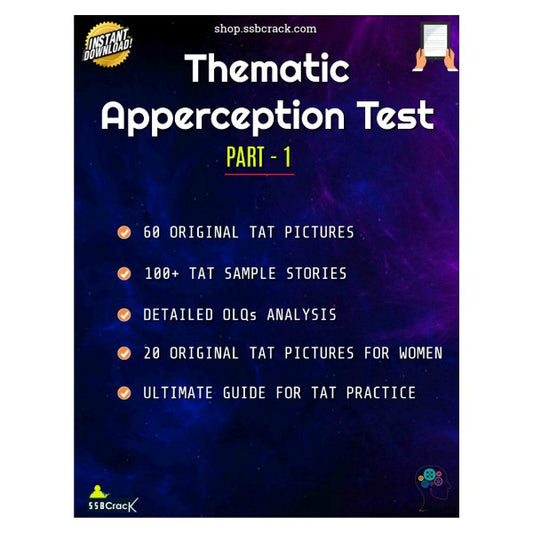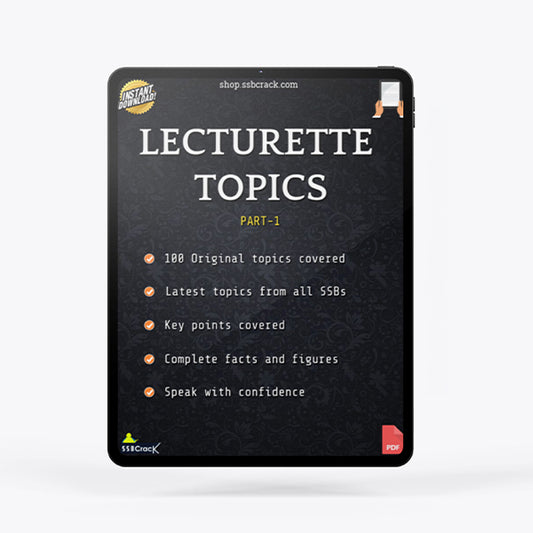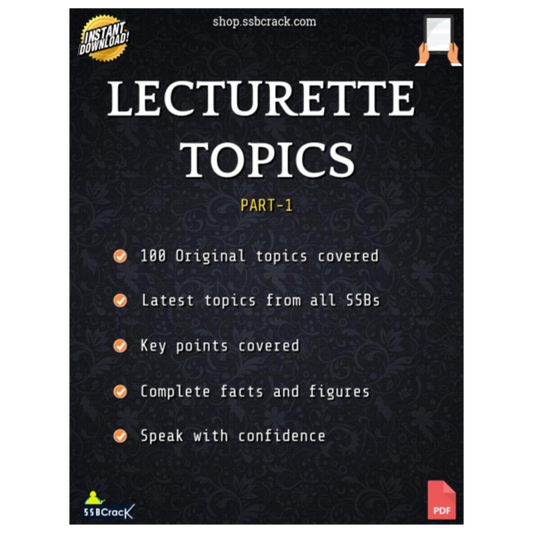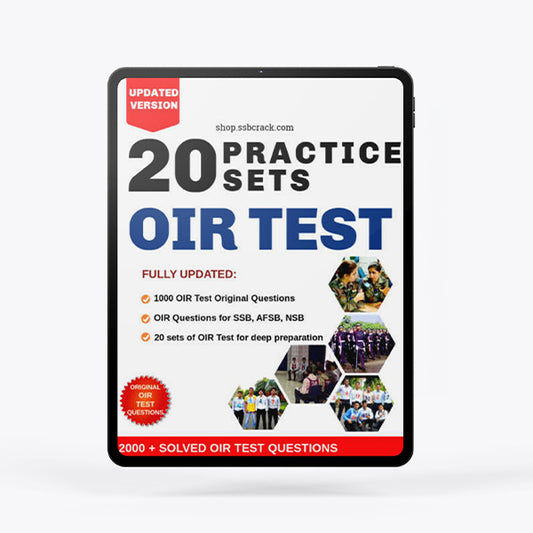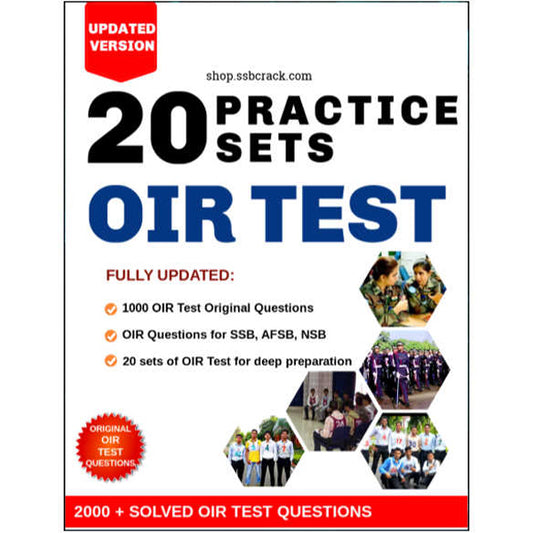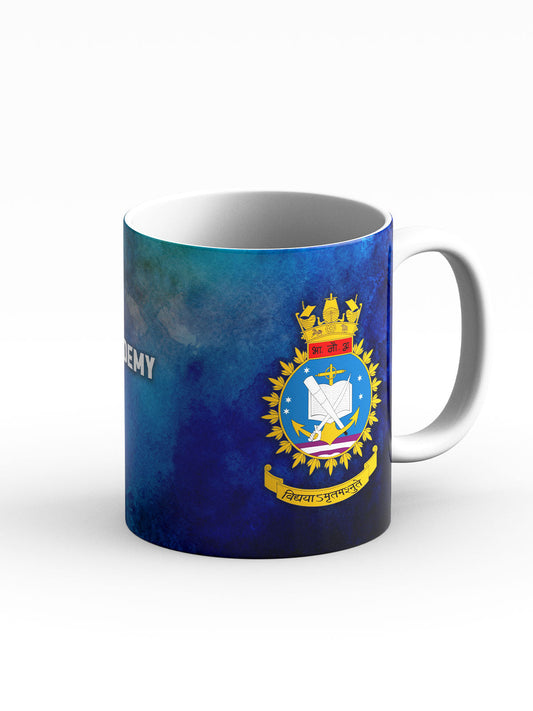10 SSB Interview Questions For Repeaters With Answers
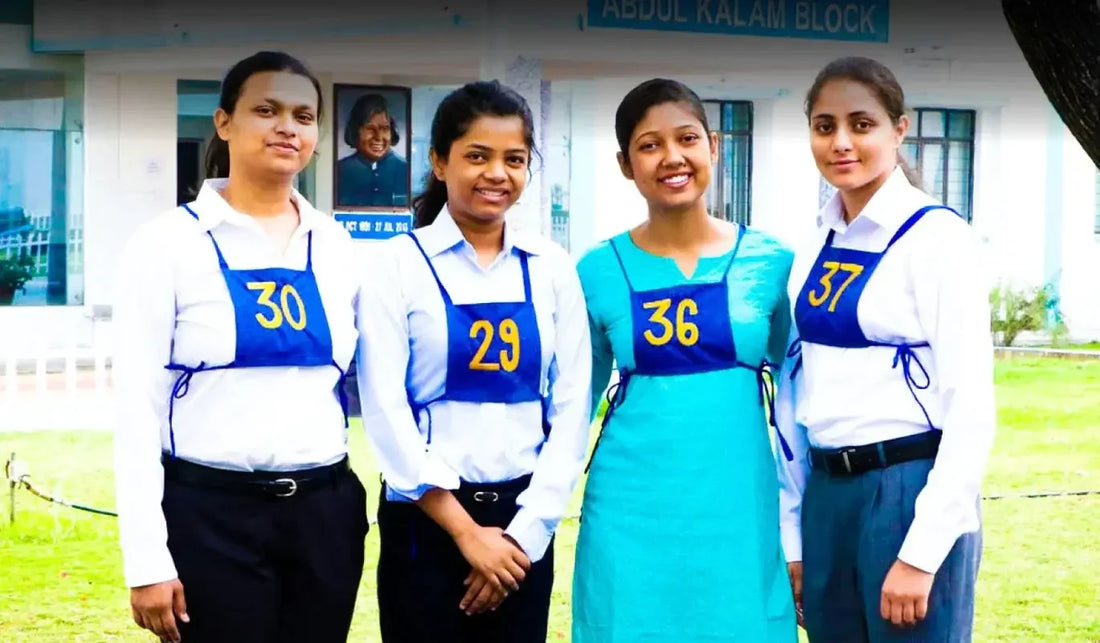
The journey towards securing a position in the Indian Defence Services through the Services Selection Board (SSB) interview is often filled with challenges, particularly for those who find themselves returning as repeaters. For candidates who have previously appeared for the SSB but were not recommended, preparing effectively for the next attempt can make a considerable difference. A common set of questions is usually posed during these interviews that probe candidates’ self-awareness, commitment to improvement, and resilience. This article aims to equip repeaters with a comprehensive guide on the ten most common SSB interview questions, along with strategies for answering them effectively.
SSB Interview Books Power Pack: 4 Must Read Books for Defence Aspirants
Rs. 1,760.00
Sale price
Rs. 1,399.00
Let's Crack SSB Interview Book [Paperback]
Rs. 390.00
Sale price
Rs. 360.00
Breaking The Code of SSB Psychological Tests Book - SSB Interview (TAT/WAT/SRT/SD)
Rs. 390.00
Sale price
Rs. 360.00
OIR Test & PPDT Book - SSB Interview Screening Test - Stage 1 Testing
Rs. 490.00
Sale price
Rs. 375.00
Understanding the SSB Interview
The SSB interview process is an extensive evaluation that includes a psychological assessment, group discussions, outdoor tasks, and personal interviews. It aims to gauge a candidate’s potential as a leader in the Defence Services. The selection process can often be daunting, with only a fraction of candidates being recommended. According to recent data, only about 6-10% of aspirants make it through on an average attempt.
In this high-stakes environment, repeaters must identify not only the questions they will face but also the deeper implications of their responses. Self-reflection, a focus on personal growth, and a strategic approach to preparation can enhance their chances of success.
Common Questions for Repeaters with Sample Answers
1. Why were you not recommended in your previous SSB?
A common intro and reflection point, this question assesses the candidate's ability to critically evaluate their past performance.
Sample Answer:
"I realized I needed to enhance qualities like self-confidence and effective communication. Reflecting on my experience, I identified gaps in my general awareness and physical preparedness. This valuable eye-opener provided me with clarity about where I needed to improve, enabling me to grow personally and professionally."
2. What special preparation have you done this time to clear SSB?
This question aims to discern the candidate's commitment to overcoming their previous shortcomings.
Sample Answer:
"This time, I focused on holistic development. I enhanced my communication skills by actively engaging in debates and public speaking sessions. Additionally, I made a conscious effort to stay updated with current affairs by regularly reading newspapers and journals. To meet the physical requirements, I adhered to a disciplined fitness routine that fully prepared me for the physical tests."
3. What did you perform best during your previous SSB?
Understanding strengths is crucial, even for those who have faced rejection.
Sample Answer:
"I performed best in the Group Tasks, where I showcased my ability to collaborate effectively with my peers, contribute practical solutions, and display leadership qualities when necessary. This reaffirmed my strength in a team-oriented environment and motivated me to build on those skills."
4. What may be the reason for your failure in the last SSB?
This question is akin to the first and aims to extract deeper insights into the candidate's self-assessment.
Sample Answer:
"I believe I struggled to project myself accurately and did not provide satisfactory answers during the personal interview, which limited my potential to convey my true capabilities."
5. What if I do not recommend you this time also?
This question tests a candidate's resilience and persistence in the face of potential disappointment.
Sample Answer:
"I will definitely feel disheartened, but I will take it as an opportunity to reflect on my preparation. I believe in continuous improvement, and I will analyze my performance to identify areas of weakness, ensuring that I come back with an improved strategy."
SSB Interview Study Material 2026 [ Pack of 17 eBooks ]
Rs. 1,313.00
Sale price
Rs. 499.00
Thematic Apperception Test (TAT) Part 1 eBook [100+ Stories]
Rs. 150.00
Sale price
Rs. 139.00
SSB Lecturette Topics Part-1 eBook [100 Topics]
Rs. 149.00
Sale price
Rs. 125.00
OIR Test eBook with 20 Practice Sets - [1000+ Questions Included]
Rs. 250.00
Sale price
Rs. 199.00
6. Do you think your physical fitness may be one of the reasons for your rejection in the last SSB?
This question presents an opportunity for candidates to self-evaluate their physical readiness for the challenges in Defence.
Sample Answer:
"I do not think my physical fitness is an issue, Sir. I have maintained good fitness levels and performed well during my GTO. Successfully navigating over 10 obstacles considerably exceeded the expectations."
7. What are the top qualities of an Officer?
Understanding the traits required for leadership roles is imperative for prospective Defence Officers.
Sample Answer:
"Decision-making is, in my opinion, the top quality that distinguishes an officer. An officer must make informed decisions, take responsibility for the outcomes, and demonstrate resilience even in the face of failure."
8. How do you face rejections and start preparing again?
Handling rejection is vital for personal growth, especially in a competitive environment.
Sample Answer:
"Facing rejection calls for introspection. I analyze my mistakes and work on them constructively. I maintain a positive outlook and focus on self-improvement. Continuous learning is my guiding principle."
9. What is your career plan if you get rejected this time too?
Long-term planning indicates maturity and foresight, crucial traits for officers.
Sample Answer:
"If I get rejected this time as well, I will continue analyzing my performances and working on my weaknesses. My strategy is to keep preparing diligently until I succeed, but I will also explore alternative career options that align with my skills and interests."
10. Tell me about your previous SSBs.
This question aims to review candidates' past experiences, focusing on learning outcomes.
Sample Answer:
"Previously, I attended one SSB in Bhopal, specifically the 22 SSB. I was conferenced out, but the experience was invaluable. I learned a lot about my weaknesses, and I have worked diligently to address those areas since then."
Additional Preparation Strategies for Repeaters
Being equipped with potential answers to common questions is crucial, but repeaters must also adopt a comprehensive approach to their preparation.
Reflect on Past Experiences
- Self-Analysis: Candidates should engage in a thorough post-mortem of their previous interview. Creating a checklist of deficiencies and areas for improvement can provide clarity and direction.
- Structured Reflection: Maintain a journal to document thoughts and insights gained from previous attempts, which can serve as a practical guide during preparation.
Strengthen Your Basics
- Communication Skills: Effective communication is critical. Candidates can join public speaking clubs or engage in group discussions to boost their confidence and clarity of expression.
- General Knowledge: Stay informed about current affairs by dedicating time each day to reading reliable newspapers, magazines, or online resources. This knowledge can significantly enhance performance in group discussions and interviews.
Focus on Physical Fitness
- Routine Practices: Daily physical activities not only enhance physical fitness but also contribute to mental well-being. Regular exercise, including strength training and cardiovascular workouts, can improve stamina and overall fitness.
- Mindfulness Techniques: Incorporating yoga or meditation can help candidates stay calm and focused, both of which are essential during the pressure of interviews.
Seek Feedback
- Practice with Peers: Engaging in mock interviews and group discussions with fellow aspirants can fine-tune responses and build group dynamics.
- Mentorship: Receiving feedback from experienced individuals familiar with the SSB process can provide insights that candidates may overlook.
Indian Military Academy IMA Coffee Mug
Rs. 699.00
Sale price
Rs. 499.00
NDA Service Before Self Coffee Mug
Rs. 699.00
Sale price
Rs. 499.00
Officers Training Academy OTA Chennai Coffee Mug
Rs. 699.00
Sale price
Rs. 499.00
Indian Naval Academy INA Ezhimala Coffee Mug
Rs. 699.00
Sale price
Rs. 499.00
The Path Ahead: Embracing Continuous Improvement
For repeaters, the path ahead is one of determination and commitment to improvement. Not only do candidates need to demonstrate their readiness to learn from past experiences, but they must also show tangible evidence of growth. Investing time in self-improvement, health, and knowledge will not only bolster confidence but also enhance overall contributions to group dynamics during the SSB process.
Conclusion
The SSB interview is a crucial gateway to a fulfilling career in the Indian Defence Forces. For repeaters, thorough preparation, strategic self-assessment, and resilience play a vital role in converting past failures into future successes. By preparing thoughtfully and addressing weaknesses while highlighting strengths, candidates can significantly improve their chances of being recommended. The challenge may be great, but the rewards of service in the Defence Forces are profound, making every effort worthwhile. Aspiring candidates should remember that persistence and a positive attitude can lead to success where they may have previously faced setbacks. By embracing a mindset of continuous improvement, the dream of serving in the Defence Forces can become a reality.
To further empower your preparation, consider utilizing resources from SSBCrack and SSBCrackExams, including study materials, eBooks, and online courses tailored to help candidates navigate the complexities of the SSB interview process.
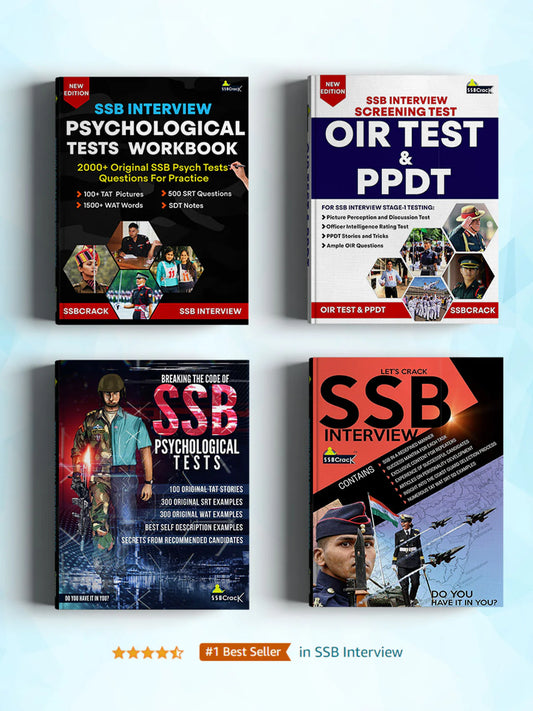
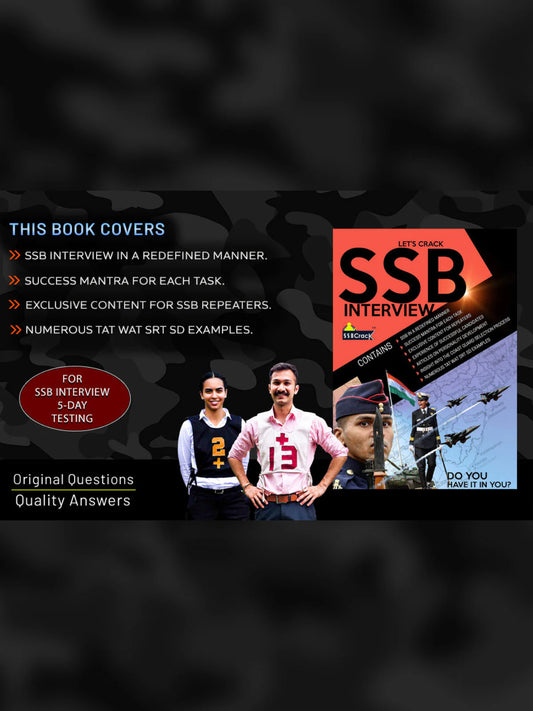
![Let's Crack SSB Interview Book [Paperback]](http://shop.ssbcrack.com/cdn/shop/files/ssb-books.webp?v=1736351621&width=533)
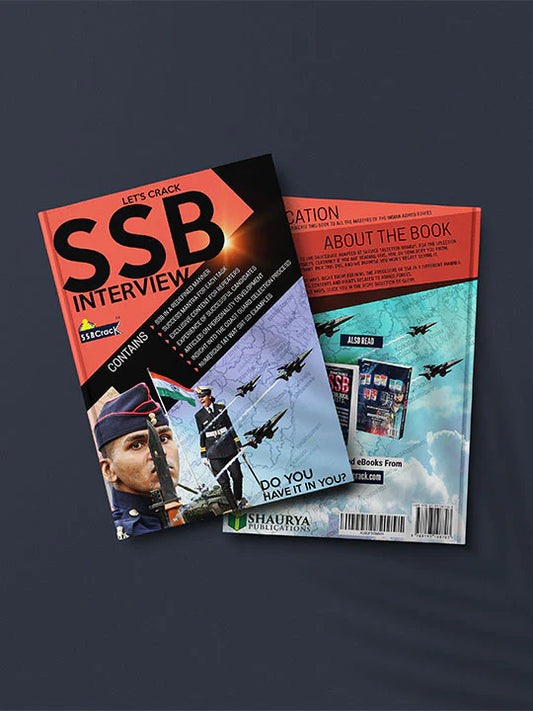
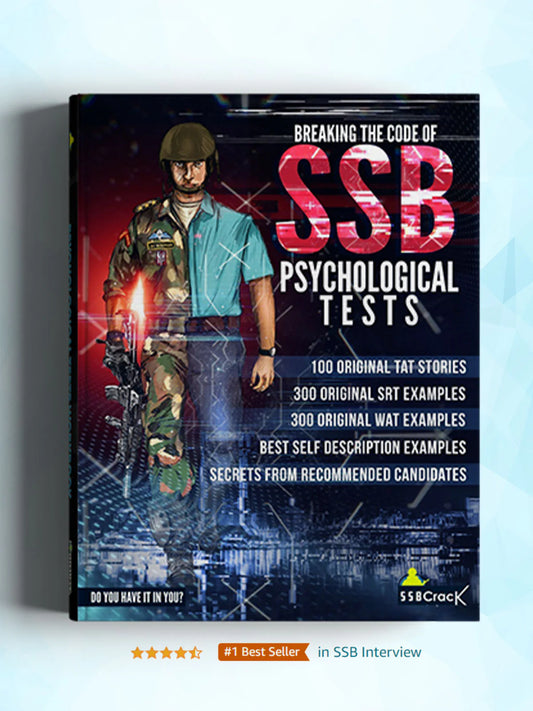
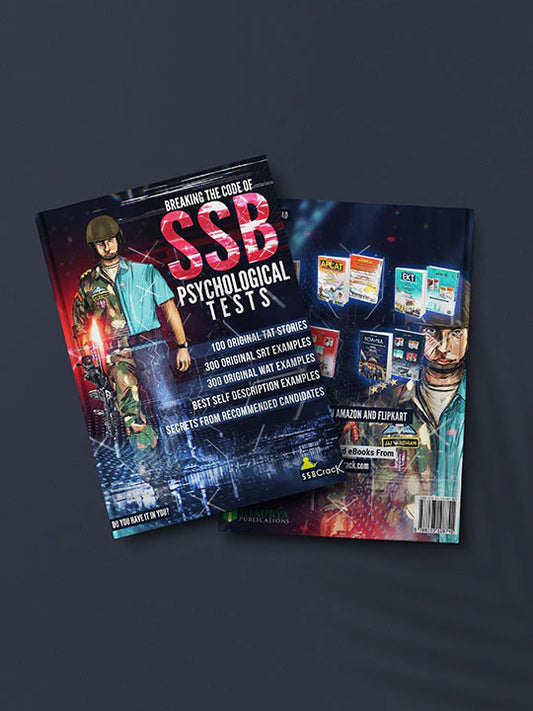
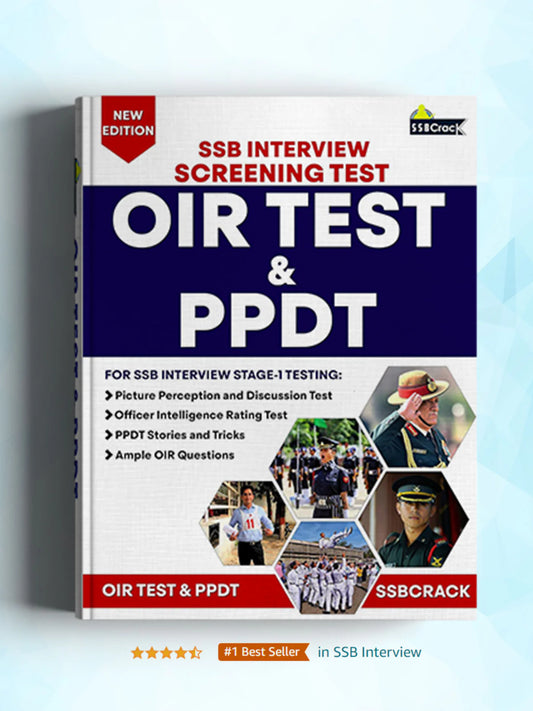
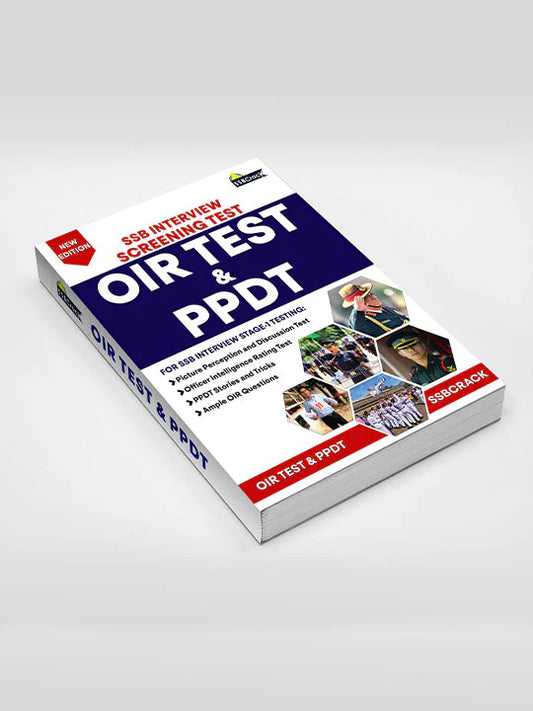
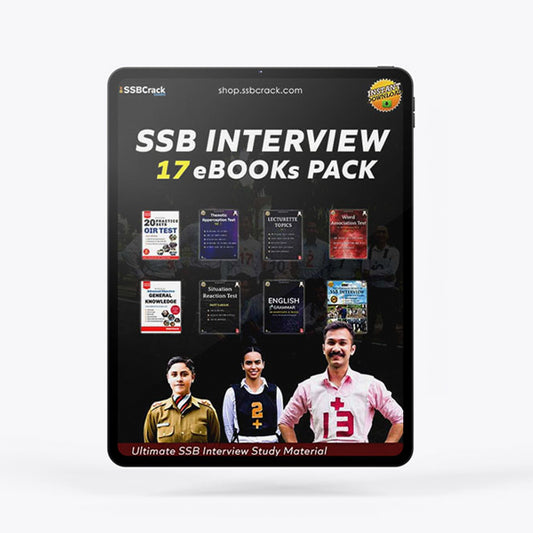
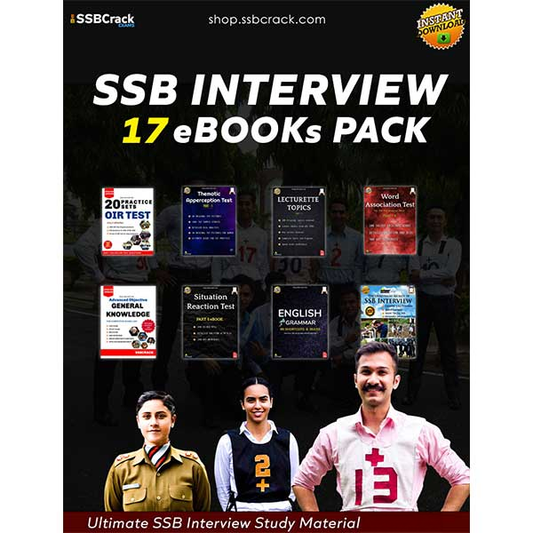
![Thematic Apperception Test (TAT) Part 1 eBook [100+ Stories]](http://shop.ssbcrack.com/cdn/shop/files/TAT-ebook-part-1-ssbcrack_051ae49c-43ea-4eb4-95c7-0fa0bfa2a639.jpg?v=1735540406&width=533)
